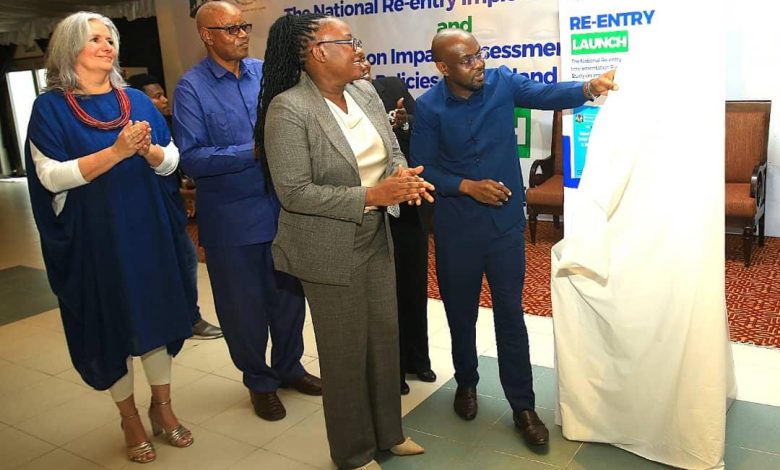Why Tanzanian teen mothers prefer informal education

DAR ES SALAAM: A comprehensive research study has laid bare a surprising if not ironic result: most Tanzanian girl-students who return to school after giving birth prefer informal education to the formal system.
The study, launched in Dar es Salaam by Prof Sempeho Siafu of the Institute of Adult Education (IAE), reveals why the government’s 2021 school re-entry policy, though progressive on paper, is facing practical hurdles on the ground.
A bold policy, a messy reality
The re-entry policy, introduced in 2021, allows students who dropped out — including those who left school due to pregnancy to resume their education. It was officially rolled out with the National Re-entry Implementation Plan and the Study on Impact Assessment of School Re-entry Policies in Mainland Tanzania, both unveiled this week.
While the policy was meant to help learners reclaim their academic dreams, Prof. Siafu’s findings show that implementation is far from straightforward.
The research focused particularly on pregnancy as a major cause of school dropout though other factors affect both girls and boys. For young mothers, however, returning to school brings unique challenges. Recognising this, the government appointed the Tanzania Education Network (TEN/MET) to coordinate implementation in partnership with the Ministry of Education, Science and Technology (MoEST), PO-RALG, and several other ministries and agencies.
The informal allure
Despite the policy encouraging students to rejoin their original (formal) schools, the study found that most girls prefer enrolling in informal or alternative education programmes under the IAE.
“The re-entry policy gives students the freedom to join either the formal or informal system,” Prof Siafu explained. “But in practice, most choose informal education because it offers flexibility that formal schooling does not.”
ALSO READ: Dating and marrying your coworker: A smart move or a risky bet?
In formal schools, young mothers must attend morning assemblies, wear uniforms, stick to strict timetables and behave like their peers hardly easy when you’re caring for a baby. Informal education, on the other hand, offers relaxed schedules, no uniform requirements and, most importantly, space for breastfeeding and childcare.
As one respondent put it: “It’s not that we don’t value formal school — it’s just that our babies don’t follow the bell.”
Impressive numbers, mixed results
The researchers originally aimed to facilitate re-entry for 12,000 learners. So far, over 15,000 girls have returned to school, along with 1,700 boys who also dropped out for various reasons. But while the numbers show progress, the trend toward informal education remains strong a quiet signal that the formal system is still struggling to adapt.
Barriers on every level
Prof Siafu outlined several challenges blocking smooth implementation, grouping them into three levels:
Individual (Stigma): Many returning girls face ridicule or isolation from peers and even teachers. “Teen mum” remains a heavy label, discouraging some from returning at all.
School: Many schools lack facilities for young mothers no private rooms for breastfeeding or changing, and no provision for childcare.
Community: Awareness of the re-entry policy among parents, guardians and teachers is still patchy, leading to confusion and resistance.
“The policy is ambitious,” Prof. Siafu admitted, “but the environment often isn’t ready. Schools still expect returning mothers to behave exactly like every other student, which is unrealistic when you’re balancing textbooks and diapers.”
Leadership and hope
At the launch, Dr. Hussein Mohamed Omar, Deputy Permanent Secretary in the MoEST, commended President Samia Suluhu Hassan for lifting the ban that once barred pregnant girls from returning to school. “His decision highlights his commitment to ensuring every child has a second chance,” he said.
He acknowledged, however, that the government cannot achieve this alone: “We need partnerships with stakeholders like TEN/MET so that together, we can make this policy deliver real results.”
Dr Omar pledged continued government commitment to fix the gaps exposed by the research. “The setbacks identified shouldn’t just sit in reports — they must be addressed, urgently and collaboratively,” he said.
UNICEF and partners weigh in
UNICEF Chief of Education, Simone Vis, praised the government for its bold move, noting that the policy has already changed lives across the country. She shared personal accounts from girls she met in Songwe, Kigoma, Tabora, Dodoma and Dar es Salaam.
ALSO READ: Tanzania recruits 45 law experts to improve legal service delivery
“These girls told me how returning to school has given them hope again,” she said. “Though challenges remain, their dreams remind us why we’re here — to make sure every child in Tanzania can learn, thrive and dream again.”
TEN/MET’s mission
Martha Makala, TEN/MET’s National Coordinator, thanked MoEST for entrusting them with policy coordination. She reiterated their commitment to ensuring no learner is denied education, noting that the policy grants a two-year window for dropouts to re-enrol.
As of March 2024, over 22,800 girls had returned to school but only 5,100 joined formal institutions, while nearly 17,700 opted for informal education. “That gap tells us something,” Ms. Makala observed. “Flexibility wins.”
She added that TEN/MET is advocating for the re-entry policy to be enshrined in the constitution, to protect it from political shifts or neglect.
Lessons from the data
The study’s findings — and the comments from various speakers paint a clear picture: the policy is good, but the system isn’t yet ready for the realities of motherhood in the classroom. A few key takeaways stand out:
Flexibility is critical. The formal school structure, built around teenage schedules, doesn’t suit young mothers. Informal education provides the adaptability they need.
Infrastructure matters. Without breastfeeding rooms, childcare spaces or even flexible class hours, returning mothers struggle to stay.
Awareness is low. Many parents, teachers and administrators still don’t understand how the policy works or why it matters.
Stigma persists. Negative attitudes from peers and educators continue to discourage re-entry.
Implementation, not intention, is the issue. Policies on paper don’t change lives until schools and communities make space literally and socially for young mothers to learn.
From exclusion to inclusion
The 2021 re-entry policy marked a major shift in Tanzania’s education landscape. For years, pregnant girls were expelled and banned from returning, a practice international observers labelled discriminatory. Reversing that ban was a triumph for inclusion but as the study shows, inclusion requires more than permission; it requires adaptation.
If one might add a touch of humour: the formal school system is a bit like a host who invites you back to the party but says, “Sure, you can come — but wear the same outfit, arrive at the same time, and don’t bring your baby.” Meanwhile, the informal system says, “Come as you are baby and all.” No wonder attendance is higher at the second party.
The way forward
To make the re-entry policy truly work, the report and its stakeholders propose several action points: Increase awareness among teachers, parents and communities about the rights of returning learners and how schools can support them; Upgrade infrastructure to include breastfeeding and changing rooms, flexible class hours and counselling services; Combat stigma through community campaigns that celebrate resilience rather than shame young mothers; Monitor progress to see how many returnees stay in school and which systems serve them best; Constitutional protection of the re-entry right to safeguard it against future policy reversals.
The big picture
The re-entry policy represents progress a promise that pregnancy, illness or hardship doesn’t mark the end of a child’s education. Yet the research shows that returning girls often find the formal system too rigid, leading them toward the more forgiving, flexible informal path.
If the formal system wants them back for good, it must learn to bend. Until then, informal education will remain the quiet hero offering Tanzania’s young mothers not just a second chance, but a fair one.
As the study concludes: a second chance means little if the door won’t open wide enough. The next phase of implementation must ensure that when the girls come knocking babies on hips and books in hand the welcome is real, not conditional.





